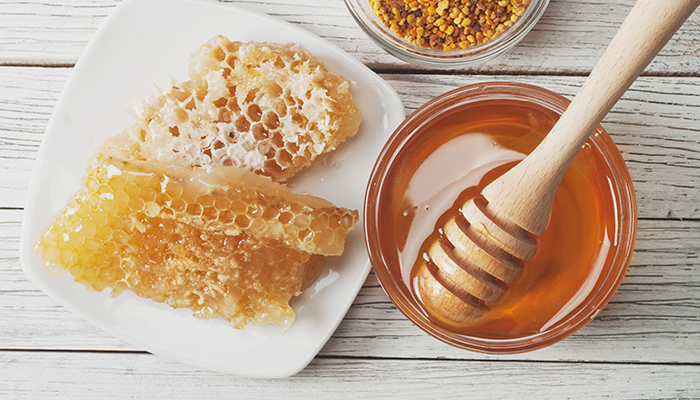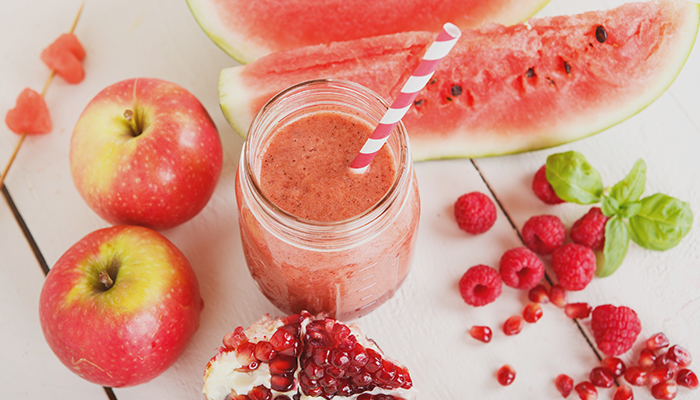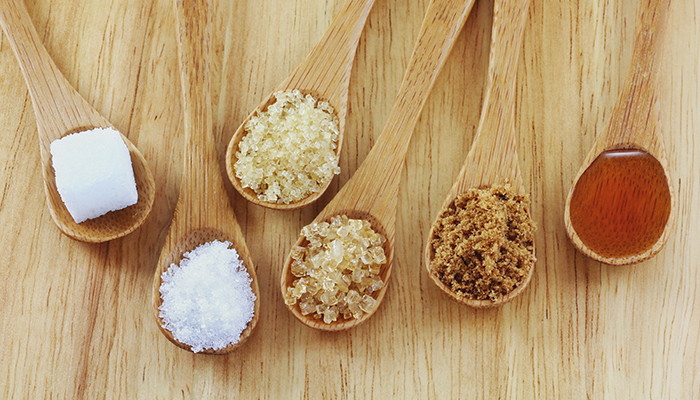SSS Team, SSSPORTS.COM

Sugar – we know it’s not good for us, but so many of us can’t help but crave it, particularly after meal times and as a bit of a pick-me-up on a busy day, when we need that little boost of energy to keep us going. The problem with the sweet stuff is that it can actually lead to sugar addiction, it harms the teeth, overloads the liver, can lead to diabetes when consumed in excess and the list goes on. So what can we do to avoid the negative effects of sweeteners, while still finding a way to satisfy that sweet craving? The answer is substitution: go for natural sweeteners in place of the refined versions.
We are constantly evolving the way we prepare and cook food, and a new generation of natural sugar substitutes is making it possible to satisfy a sweet craving in a more natural way. Instead of relying on refined sugar and artificial sweeteners, there are numerous plant derivatives with their own sugary goodness that contain fewer calories, have less impact on blood sugar levels, and are of course a natural source of sugar. Although these alternatives are better for us, it’s all about moderation, because an excess of anything can be unhealthy.

There are many different types of natural sweeteners: including agave, honey, stevia and a huge range of fruits. Agave is about 1.5 times sweeter than sugar and has a lower glycemic index. Honey feeds your body with a number of critical vitamins and minerals, including B2 and B6, iron and manganese. It’s also a natural weapon against free radicals, with studies showing that honey can also boost blood markers of polyphenolic antioxidant activity within a month. The extract called Rebina taken from the stevia plant’s leaves is almost 300 times sweeter than sugar but has zero calories, zero carbohydrates and none of the nasty side effects of artificial sweeteners, making it one of the most ideal natural sweeteners.

Eating fruits as a substitute for chocolate and candy is a great way to curb sugar cravings and they also add an essential fibre component to your dietary intake which is great for overall digestive wellness. Mangos are notoriously known to be one of the sweetest varieties of fruit and are fairly low in calories, rich in Vitamin A, flavonoids and beta-carotene. These substances are known to have antioxidant properties and are good for vision. They do however contain around 14 grams of sugar for every 100 grams of mango. Similarly we have dates, bananas, grapes, papayas, cherries, figs and many other sweet fruits that secrete that sugary goodness we all love so much.
Eating a diet rich in fruits may reduce the risk of heart disease, heart attacks and strokes, and certain fruit contents may also protect against certain types of cancers. Fruits even help maintain optimum levels of health thanks to the presence of phytochemicals and nutrients that are vital for general health and maintenance of the body. But not everything about consuming these sugary fruits is positive because over-consumption could also lead to indigestion, sugar imbalance, and a high calorie intake.

Natural doesn’t always mean healthy. Despite claims that agave syrup is natural, most of it is actually processed and it can contain as much as 80% fructose. Even if natural sweeteners aren’t processed or refined, they can still have the same drawbacks as sugar. Honey, while being natural, still contains 22 calories per teaspoon, slightly more than sugar. It can also spike your blood sugar and is very similar to Maple syrup in that regard.
At first glance, natural sweeteners would seem to be a better choice than sugar but some will raise your blood sugar just as much. In addition, most natural sweeteners contain as many calories as sugar so they won’t necessarily be that great for you if you’re trying to lose weight. Even though natural sweeteners provide you with plenty of health benefits, they also come at a slight cost. It’s all about moderation and ensuring that you have a healthy and balanced diet that contains the right proportions of each food group. And of course a treat every now and then is important to have – we’re only human after all.
For more health tips and fitness advice, sign up to the Sun & Sand Sports newsletter in the box below so you can stay updated on everything we cover on the Become blog. Head to the online shop to kit yourself out in all the latest sports gear and you’ll be ready to start your fitness journey with us.